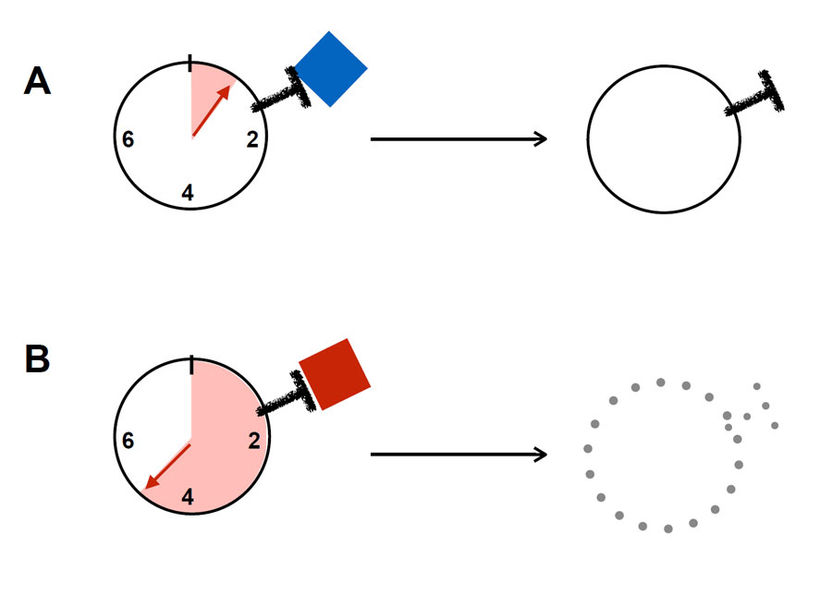Counting the seconds for immunological tolerance
Our immune system must distinguish between self and foreign and in order to fight infections without damaging the body's own cells at the same time. The immune system is loyal to cells in the body, but how this works is not fully understood. Researchers in the Department of Biomedicine at the University Hospital and the University of Basel have discovered that the immune system uses a molecular biological clock to target intolerant T cells during their maturation process. These recent findings have been reported in the scientific journal Cell.

A molecular clock determines “loyalty” of every developing T cell A) When a developing T cell binds one of the body’s molecules for a short time (less than 4 seconds), it is “loyal" to the body and continues to mature into a pathogen-fighting T cell. B) If the process exceeds four seconds, it triggers the death of the developing T cell. In this way, aggressive autoimmune T cells are eliminated from the immune system.
University of Basel
A functioning immune system is tolerant towards the body's own tissue. During maturation, immune cells are targeted and eliminated if they have a strong reaction to the body's own substances. This process is a fundamental topic of immunology research. If intolerant T cells survive this selection process when they should have been eliminated, this can lead to an autoimmune disease such as multiple sclerosis, diabetes or rheumatoid arthritis.
Self-tolerance depends on negative selection
An article appearing in the latest edition of the journal Cell discusses how immunological self-tolerance develops. The article was published by the research group led by Professor Ed Palmer and first author Ondrej Stepanek from the Department of Biomedicine at the University Hospital and the University of Basel along with researchers from Cambridge (USA) and Cardiff (UK).
During their maturation process, T cells in the thymus undergo various tests requiring T cell’s antigen receptor to bind the body’s own molecules. If the antigen receptor binds a body molecule too tightly, the developing T cell might eventually cause an autoimmune disease; in this case negative selection is triggered, and the cell dies. Only those T cells that exhibit “loyal” behavior towards a person's own body continue the maturation process, to become pathogen-fighting T cells.
Dwell time as the missing link
The negative selection of maturing T cells is essential for the immune system to function properly. In the current study, the authors describe the mechanism that controls the negative selection process. Based on their own experiments, they developed a mathematical model describing the molecular events underlying negative selection. The key feature is the dwell time, during which a maturing T cell binds to one of the body’s molecules. The dwell time is measured by a molecular biological chronometer. If the process exceeds four seconds, the maturing T cell is eliminated through cell death; if it is less than four seconds, the cells continue to mature because they passed the “loyalty” test.
For Palmer, who states that “this question has fascinated me for a long time,” the findings of this study are the fruits of his nearly 35 years of research in this field. “Immunological tolerance was discovered more than 60 years ago.” explains the immunologist. “Although this seems like a big step in understanding an essential part of tolerance, there are things we still don’t know such as how the immune system compensates for mistakes made during negative selection.”






















































